Butcher block countertops are a charming and warm choice for kitchen surfaces, known for their rich, natural look and practicality in a bustling kitchen. Made from wood strips that are glued together, these countertops provide a unique aesthetic that can transform any kitchen into a cozy and inviting space. However, maintaining butcher block countertops requires some special attention to ensure they look their best and remain functional over time.
If you’re considering installing butcher block countertops or you already have them, it’s important to understand the necessary care routines. Let’s dive into the details to give you everything you need to know about caring for these beautiful countertops.
To start, it’s crucial to realize that wood is porous, meaning it can absorb liquids and stains if left untreated. This quality is both a blessing and a curse for butcher block countertops. On the positive side, the natural grain and texture of wood make it warm and flexible, meaning it’s resistant to dings and scratches that might permanently mar other countertop surfaces.
However, this porosity also makes it prone to absorbing oils, stains, and moisture if not cared for properly. That’s why sealing your butcher block countertop regularly with mineral oil or other food-safe sealers is essential. Mineral oil is affordable, easy to apply, and helps prevent the wood from drying out, which can lead to cracks or warping.

When it comes to cleaning butcher block countertops, simplicity is key. Avoid harsh chemicals, as they can dry out the wood and damage the finish. Instead, stick to mild soap and warm water for daily cleaning. Use a damp cloth and wipe the countertop down after each use to remove any food particles or residue. While wood has natural antibacterial properties, wiping it down regularly helps prevent food-borne illness and keeps it hygienic.
Once you’ve wiped the countertop with soapy water, rinse it with a clean, damp cloth and dry it thoroughly. Moisture is wood’s worst enemy, so avoid letting water sit on the surface.
Deep cleaning every few weeks or as needed is also important for butcher block countertops. For this, you can use a mixture of white vinegar and water. Vinegar is a natural disinfectant and can help eliminate any lingering bacteria on the surface. Some people like to sprinkle coarse salt on the countertop and scrub it with half a lemon, which can help remove stains and freshen up the surface.
After using vinegar or lemon, be sure to rinse and dry the countertop thoroughly to prevent moisture damage. With these simple cleaning routines, you can keep your countertop both functional and sanitary.
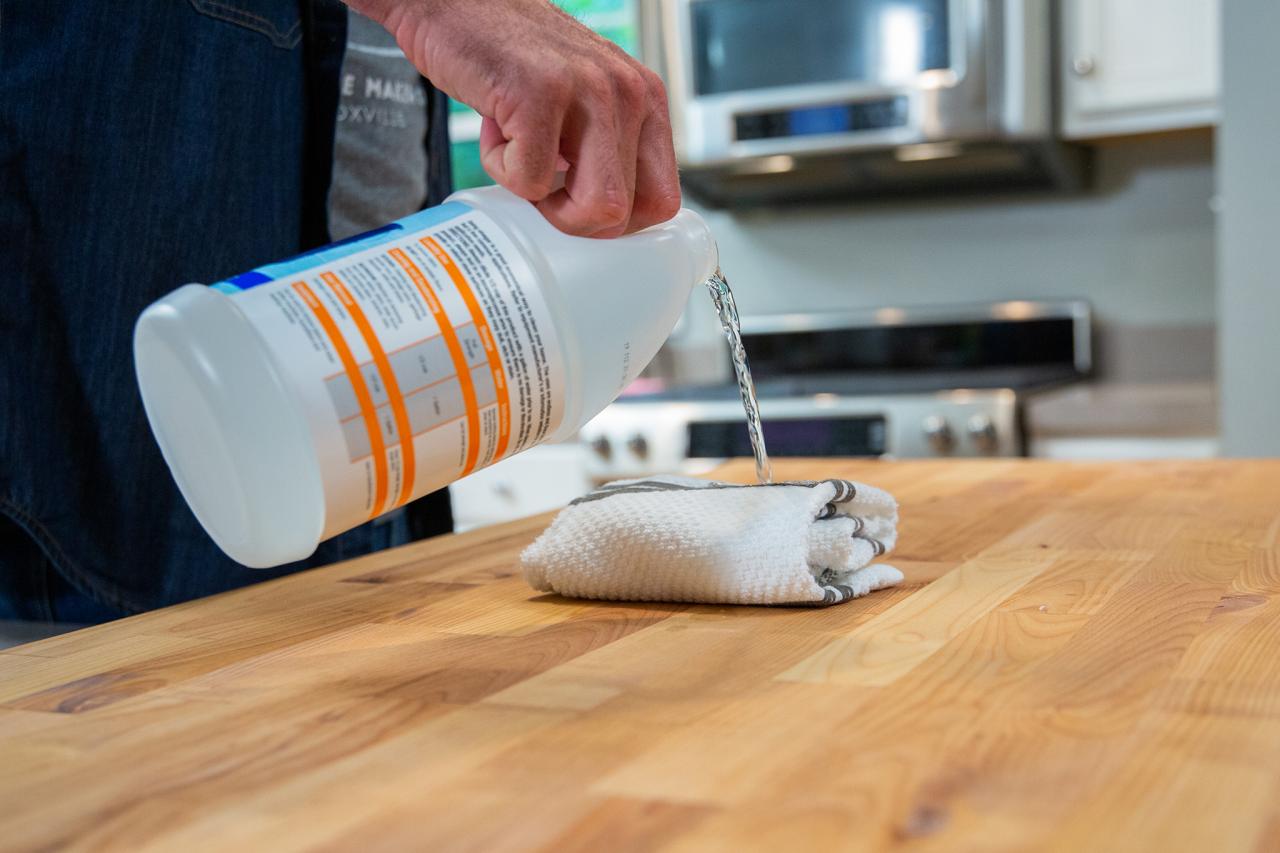
While butcher block countertops are durable, they are susceptible to scratches and cuts if used without caution. Always use a cutting board to avoid cutting directly on the surface, as knives can leave deep scratches that mar the wood. These scratches not only affect the appearance but can also create crevices where bacteria can hide. If you do accidentally scratch your butcher block countertop, minor scratches can often be sanded out with fine-grit sandpaper. Sand in the direction of the grain and use mineral oil afterward to reseal the area.
One of the more time-intensive aspects of butcher block countertop maintenance is resealing. Over time, the finish on the countertop wears off, especially in areas with heavy use, like near the sink or stove. To keep your countertop looking fresh and prevent water damage, apply mineral oil or a food-safe sealant every few weeks.
Pour a generous amount of oil onto the surface, use a clean cloth to spread it, and let it sit for several hours or overnight. The oil will soak into the wood, creating a protective barrier that repels water and keeps the wood hydrated. Wipe off any excess oil with a clean cloth before using the countertop.
If you notice that your butcher block countertop has lost its luster or feels dry to the touch, it might be time for a more thorough resealing. In this case, lightly sand the entire surface with fine-grit sandpaper to remove any residue or rough spots, then apply mineral oil. This process can revive even a neglected butcher block, bringing back the rich color and smooth texture that make these countertops so appealing. However, it’s worth noting that if your butcher block has extensive staining or damage, a professional refinishing might be necessary.
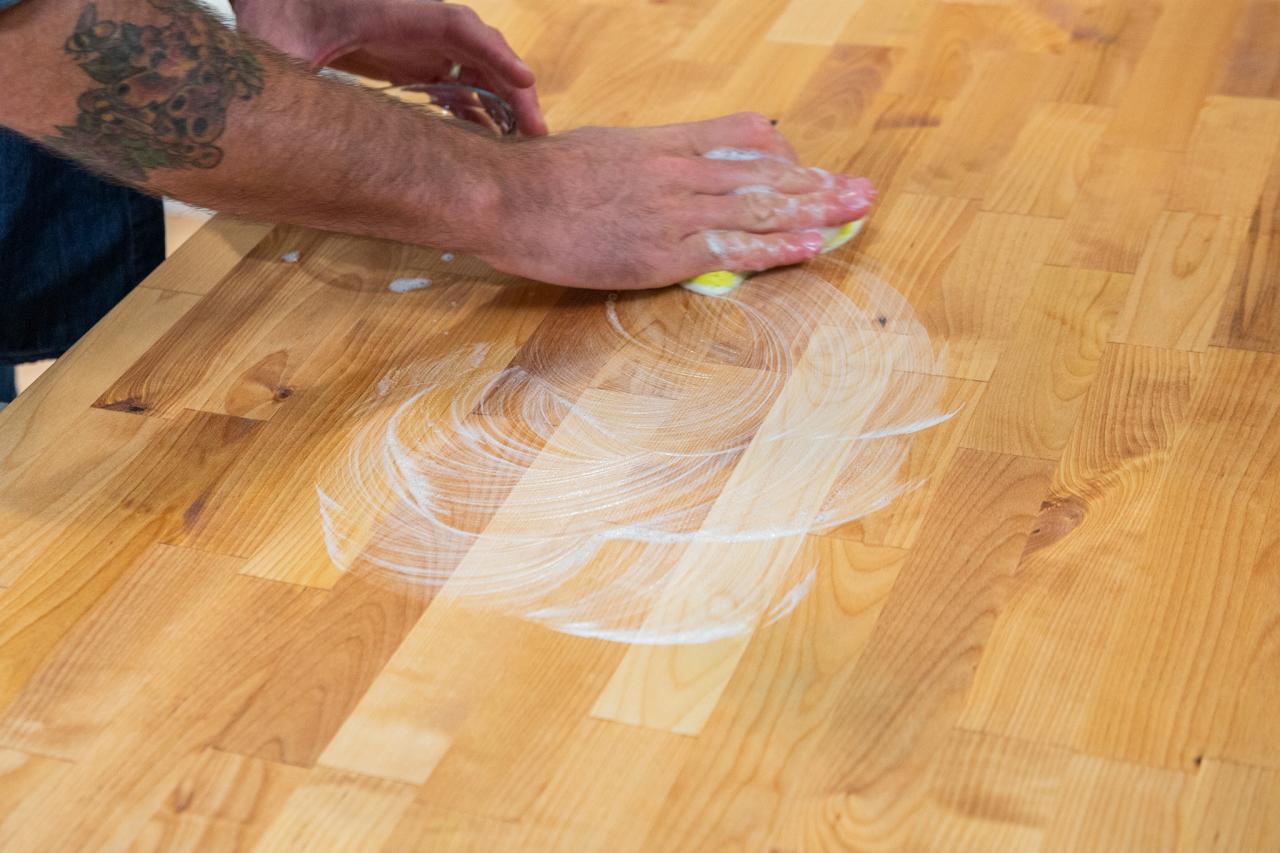
Water resistance is one of the primary concerns for butcher block countertops, especially around sinks. If water pools or spills aren’t wiped up promptly, they can seep into the wood, leading to swelling, warping, or mold. This is why regular oiling is critical for maintaining a butcher block countertop.
If your countertop is positioned near a sink, be particularly vigilant about wiping up splashes and drips. Installing a sink with an overhang that extends slightly over the wood edge can also help reduce the risk of water damage in this area.
Exposure to heat is another factor to consider with butcher block countertops. Although wood is relatively heat-resistant, it’s always safer to use a trivet or hot pad for pots and pans.
Direct exposure to hot cookware can scorch the wood, leaving unsightly burn marks. Not only does this damage the appearance, but it can also weaken the wood structure over time. Prevention is key; keeping hot pots and pans off the countertop will help preserve its smooth, unblemished surface.
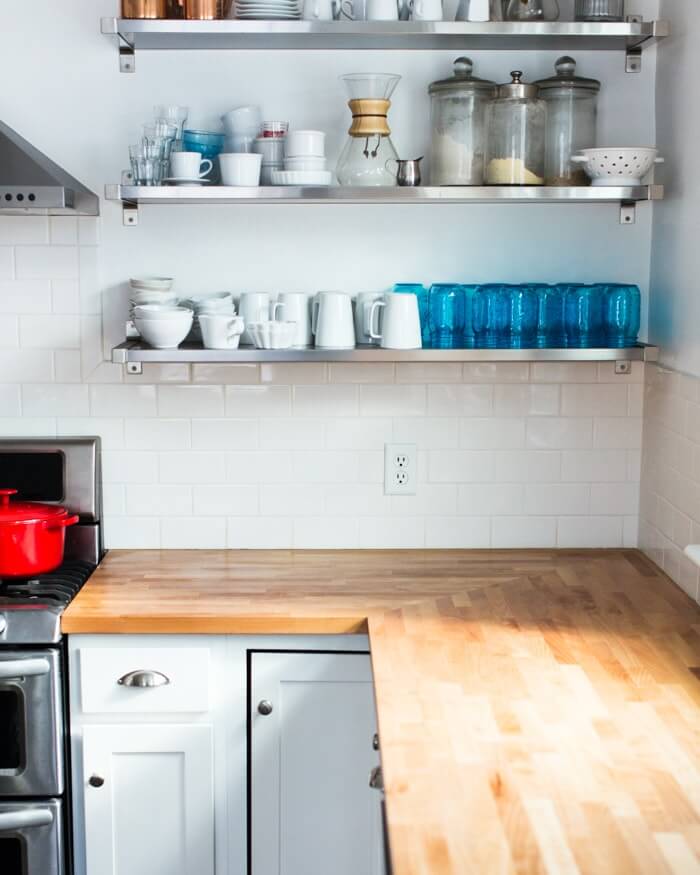
If you’ve noticed that your butcher block countertop has developed dark spots or stains from use, there are a few ways to tackle these issues. For instance, a paste made of baking soda and water can sometimes lift stains with gentle scrubbing. Be careful not to scrub too vigorously, as this can damage the wood grain. If you’re dealing with a stubborn stain, try sanding the area lightly, then reseal with mineral oil to protect the surface. Remember, small maintenance tasks like these are well worth the effort for preserving the beauty of your countertop.
Beyond regular cleaning and oiling, a little extra care will go a long way. If you plan to install butcher block countertops in an area that gets a lot of sunlight, be aware that wood can fade over time with exposure. Installing window shades or using curtains can help protect the surface. Similarly, avoid placing wet items, such as plant pots or wet dishcloths, on the countertop for long periods, as they can cause moisture rings or discoloration.
Butcher block countertops add a rustic, homey feel to any kitchen, but they aren’t the most low-maintenance option available. The natural beauty of wood requires a level of commitment to keep it looking its best. Regular oiling, careful cleaning, and prompt attention to any stains or scratches are essential steps in the maintenance routine. With this diligence, however, your butcher block countertop can last for decades and continue to add warmth and elegance to your kitchen.
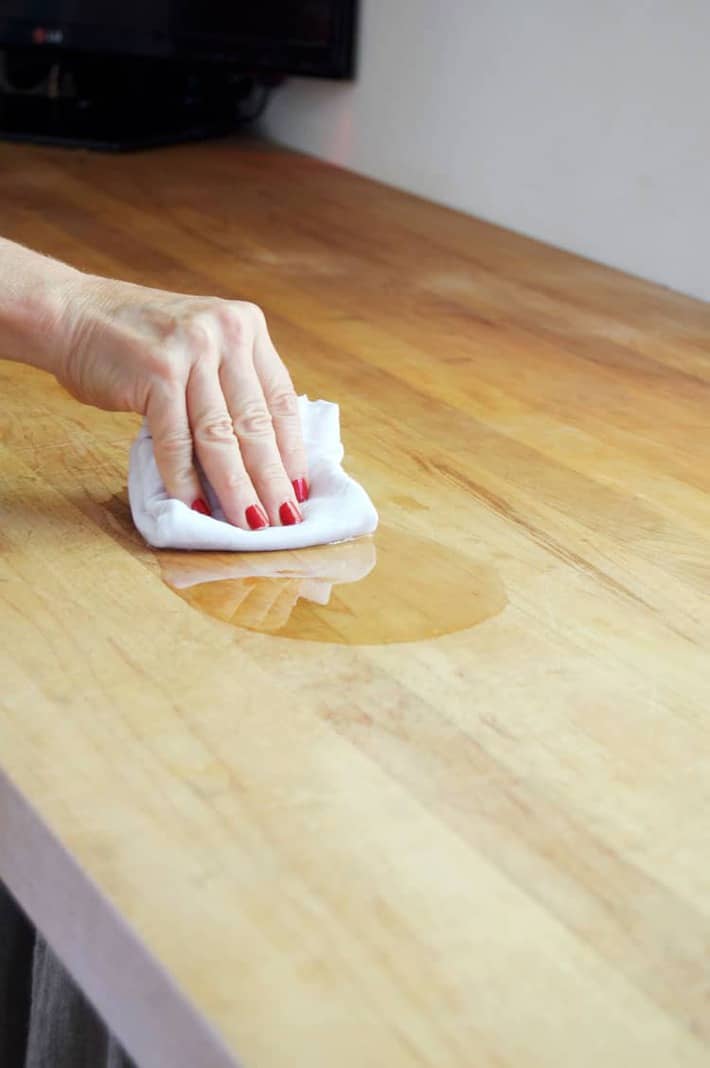
Common Mistakes to Avoid:
Skipping Regular Oiling: One of the biggest mistakes is not oiling butcher block countertops frequently enough. This step is crucial for preventing water damage and keeping the wood hydrated.
Using Harsh Cleaners: It can be tempting to use disinfectants or bleach to sanitize your countertop, but these chemicals can dry out and damage the wood. Stick with mild soap or natural disinfectants like vinegar.
Letting Water Sit on the Surface: Leaving water to sit, especially near the sink, can cause swelling and warping. Wipe up any spills immediately to prevent damage.
Cutting Directly on the Surface: Using your countertop as a cutting board can create deep scratches and nicks, leading to a worn-out look and potential bacterial growth.
Ignoring Stains and Spills: Quickly addressing stains and spills can help maintain the countertop’s appearance. Letting spills sit can lead to dark spots that are difficult to remove.
Neglecting Heat Protection: Always use a trivet or hot pad for hot cookware, as placing them directly on the wood can result in burns and damage.
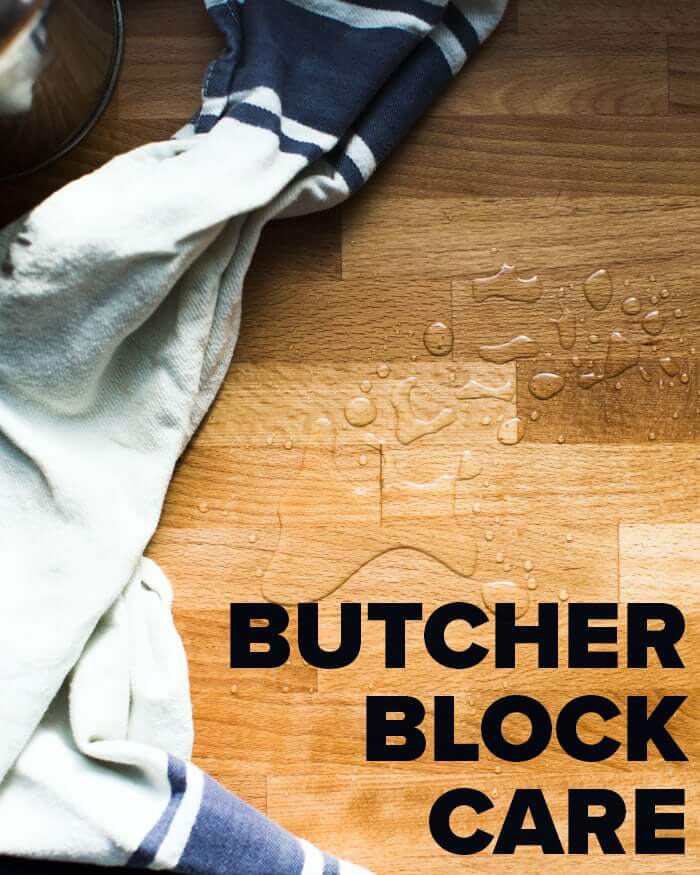
How often should I oil my butcher block countertop?
It’s generally recommended to oil butcher block countertops every two to four weeks, especially in high-use areas. This frequency keeps the wood moisturized and protected against water damage. If your countertop begins to look dry or rough, it’s a sign that it needs more oil.
Can I use any oil for my butcher block?
No, not all oils are safe for butcher block countertops. Only use food-grade mineral oil, or specifically designed butcher block oils, to seal the surface. Oils like olive or vegetable oil are not suitable, as they can turn rancid and leave an unpleasant odor.
What’s the best way to remove stains from butcher block countertops?
A mixture of baking soda and water can often lift stains when gently scrubbed. For tougher stains, a light sanding followed by resealing with mineral oil may be necessary. Regular maintenance helps prevent stains from setting in.
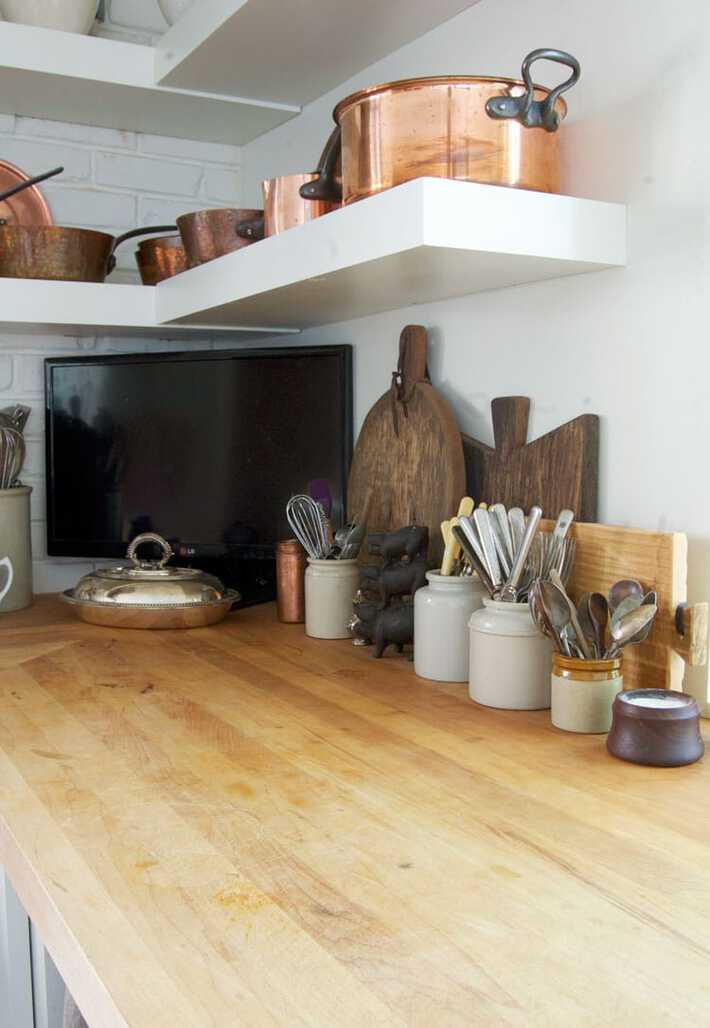
Is it safe to place hot items on butcher block countertops?
While wood is heat-resistant to some extent, placing hot items directly on the countertop can cause burn marks. Always use a trivet or hot pad to protect the wood from heat damage.
How can I repair scratches on my butcher block countertop?
Minor scratches can be sanded out with fine-grit sandpaper, always going with the grain of the wood. Once sanded, apply mineral oil to reseal the surface. For deeper scratches, you may need to consult a professional for refinishing.
What should I avoid when cleaning butcher block countertops?
Avoid harsh chemicals, bleach, or ammonia-based cleaners, as they can damage the wood’s finish and dry it out. Instead, use mild dish soap and water for daily cleaning, and occasionally disinfect with vinegar for a safe, natural clean.
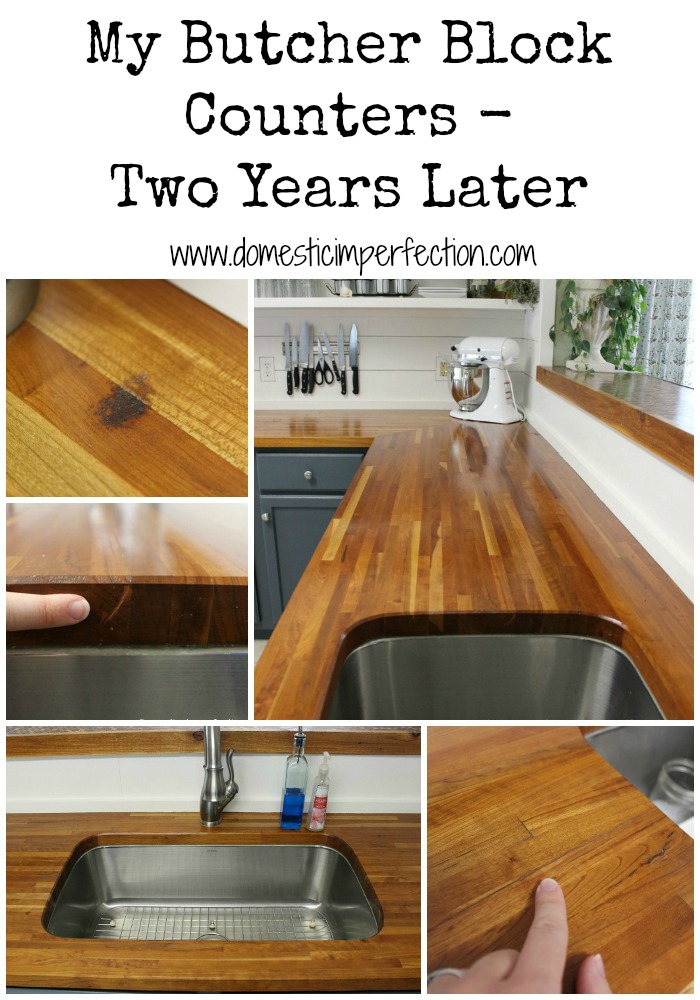
Related articles:
- Butcher Block Countertops Decor
- Butcher Block Countertops Cottage
- Stain Butcher Block Countertops
- Butcher Block Countertops Vintage
- Butcher Block Countertop Farmhouse Sink
- Mahogany Butcher Block Countertops
- Butcher Block Countertop For Kitchen Island
- Can You Paint Butcher Block Countertops
- Butcher Block Countertops With White Cabinets
- Pine Butcher Block Countertops